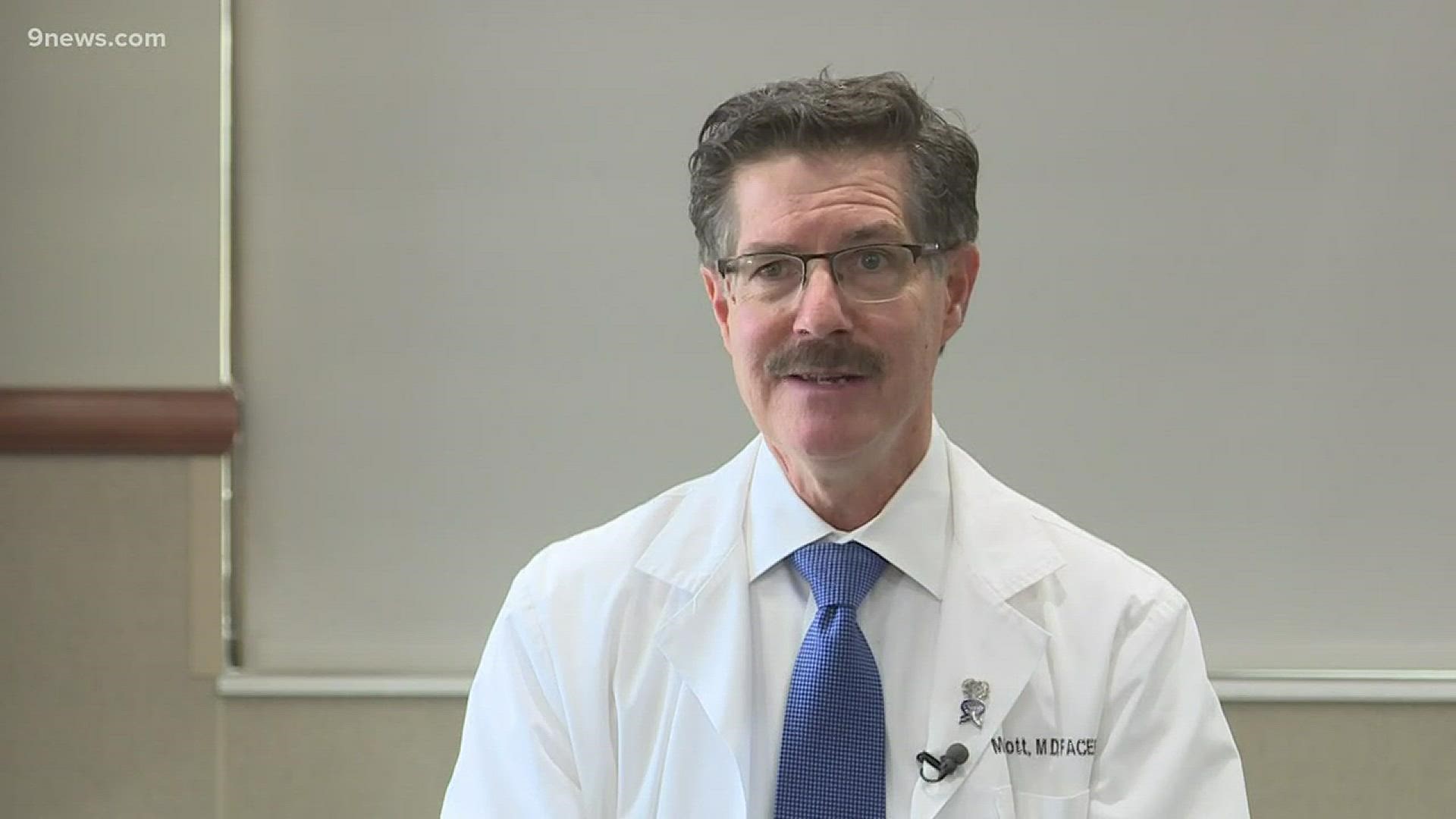LITTLETON, Colo. — Just like the majority of days for the last 30 years, Dr. Mark Elliot was working at Littleton Adventist Hospital on Tuesday. He serves as the president of medical staff.
“I was actually here getting ready for a meeting,” he said. “We first got notice that there were two trauma activation patients. That was the first notice that we got.”
Elliot is referring to Tuesday afternoon, just before 2 p.m., when law enforcement was responding to a reported shooting situation at STEM School in Highlands Ranch. One student was killed and eight others were injured, law enforcement said. Two students — one adult, one juvenile — have been taken into custody for the shooting.
When the hospital got the call about the trauma alerts, Elliot (who is also an emergency physician), raced to the emergency department with his colleagues.
RELATED: STEM School Highlands Ranch security guard saw muzzle of weapon, fired 2 rounds, sources say
Within 17 minutes, they'd received five patients, all of whom were students.
“By the time that they arrived we already had six emergency physicians in the department, we had four trauma surgeons in the department, multiple anesthesiologists, and at least 10 extra nurses on top of what we usually had,” he said.
The hospital trains for situations like this and runs drills two times a year, according to Elliot. He said he and his staff have a lot of experience with these situations.
“At our hospital, I don’t know why, but especially we’ve had a lot of 'big' days,” he said. “We’ve seen Columbine, we’ve seen the Arapahoe High School shooting. We’ve seen the Douglas County deputy shooting, and now we have the STEM school shooting.”
When situations like this happen, Elliot said medical providers learn to compartmentalize. They learn to take care of their patients first — and then take care of themselves. That said, those kinds of events can leave a lasting mark on the staff.
“The term is ‘second victim syndrome.’ In fact, the whole community is a second victim to this. That’s when someone is traumatized by a large event like this, a mass casualty event,” Elliott explained. “We’re not only victimized by hearing about the event, but we actually see the event as well.”
After the initial event, Elliot said his staff starts to check in with each other to see how each is doing. Anyone who needs to leave can say so and the staff will be supportive, according to Elliot.
“We then have a debriefing," Elliot continued. "In this situation, we had an immediate debriefing within the emergency department, to make sure people were OK, and to go over the things we learned.”
Elliott also attended another debrief session with other hospital leaders and health care providers two days later.
“Several of them were physicians, two of them were my partners who were also involved in Columbine,” he said. “One of them hasn’t been involved in any event since Columbine, but this brought things up enough that he thought it was important to be in a debrief. I think it’s important to mention you can have delayed effects. Anybody can.”
The hospital provides its staff resources through behavioral health programs and chaplain services. Elliott also encouraged anyone to reach out to Colorado Crisis Services if they need assistance.
After a difficult day at work Tuesday, he also set aside some time for himself.
“I dealt with this by going out to dinner with my son and his girlfriend and my wife, and that helped a lot,” he said. “And then coming to the debrief, I found, just like everyone else, continuing to talk helps.”
He and his team have learned a lot of lessons in the past three decades, in a hospital that’s witnessed so many difficult days.
As of Friday night, four of the five patients that came to Littleton Adventist Hospital on Tuesday had been discharged. One patient remains hospitalized, in fair condition.
“I'm very proud of our team and how well they took care of these patients,” he said.

